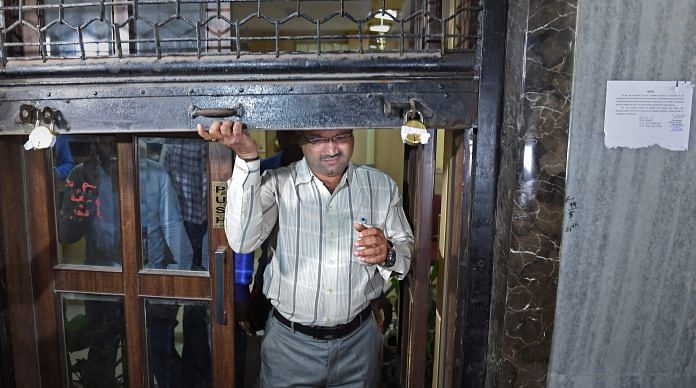Despite RBI warnings about the risks of the SWIFT messaging system, these banks have not linked it to their core banking systems.
New Delhi: As many as 30 state-run and co-operative banks are yet to integrate their core banking systems with the Society for Worldwide Interbank Financial Telecommunications (SWIFT), making them susceptible to a PNB-like scandal.
Following the Rs 11,400 crore scam allegedly committed by businessmen Nirav Modi and Mehul Choksi, regulators have called for “implementing safeguards” to avoid similar episodes. Linking the core banking and SWIFT can make it easier to pre-empt such occurrences, banking experts have said.
The Reserve Bank of India (RBI) said it had warned banks of risks arising from the potential malicious use of the SWIFT infrastructure on three occasions since August 2016, and advised them to implement safeguards. However, the banks’ implementation of such measures has been stuck at varying levels, the RBI said in a statement.
Core banking & SWIFT
Integrating CBS and SWIFT would ensure that all transactions are recorded in the system, and in turn, aid better calculation of the customer’s liabilities. Given that CBS records all details for an account holder, the linking would potentially help maintain the borrowing limit.
Banks utilise a software known as the core banking solution or CBS to register all customer information, transactions, interest rate calculation. It also passes on all entries to a single database.
A majority of the public-sector banks use CBS, but because the system is standalone, no confirmation from the CBS or any other system that originates the transaction is received.
SWIFT was set up in the early 1970s as a messaging network used by the banks globally to send and receive information about transactions via a secure system.
Before SWIFT was adopted, banks globally used telex as the means of confirming international fund transfers. However, telex grappled with issues including security concerns and low speed.
The PNB scam was carried out using letters of undertaking (LOU), a widely accepted banking product for guarantees, which allows customers to borrow money for a short period from the overseas branches of Indian banks for imports. As per the early-2016 norms outlined by the RBI, short-term credit should not exceed the 90-day period. However, in the PNB-Nirav Modi case, the term of loan was allegedly extended far beyond what is prescribed in the rule book.
A LOU is a letter of credit issued by a bank that allows for another bank, in an overseas location, to lend funds to its customer. As per the RBI guidelines, letters of credit opened for import of platinum, palladium, rhodium, silver, diamonds (rough, cut and polished), and precious and semi-precious stones should not exceed 90 days from the date of shipment. However, it has been widely reported that Nirav Modi’s firm used the LOUs to import pearls, which are not mentioned under these guidelines.



